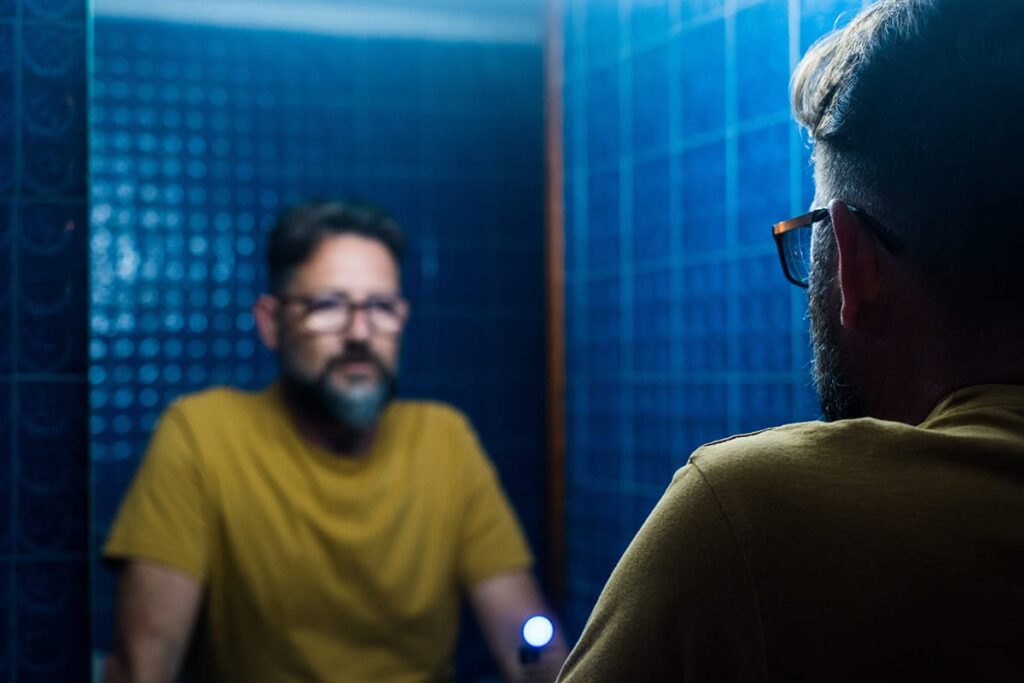Substance abusers are not particularly well-known for their patience or forbearance. Many may feel as if they are on the equivalent of an “emotional roller coaster” because they have trouble coping with feelings during recovery. If this sounds familiar, you may benefit from Ashwood Recovery’s addiction programs in Boise, Idaho. Contact us online or call 888.341.3607 to get help as you are facing your feelings when you’re sober after initial addiction treatment.
Is Having Trouble Facing Feelings During Addiction Recovery Normal?
Individuals experiencing this helter-skelter emotional bombardment can take a small measure of comfort from the fact that what they are feeling is entirely normal for a newly sober former substance abuser.
Psychological Changes in Addiction
During active addiction, the imbibed chemicals or alcohol profoundly change the brain’s chemistry. The brain’s frontal cortex—the area associated with decision-making and judgment—is significantly affected by chronic drug usage. Even when an individual enters recovery and abstains from further drug use, it can take a considerable amount of time—in some cases, over a year—for the person’s brain to return to normal.
Emotional Sobriety in Recovery
One of the biggest challenges in early recovery is re-learning how to have appropriate emotional responses to everyday life. Staying on as even a keel as possible and regulating excessively high and low feelings is known as “emotional sobriety” and is as much a lifetime project as staying sober. Learning to control too-strong emotions is critical to avoiding relapse.
In the minds of people in active addiction or those newly sober, negative feelings have habitually been dealt with by masking the pain with drugs or alcohol. Since the goal of recovery is abstinence, the individual has to cultivate new skills for dealing with the almost unpredictable emotional spectrum caused by a brain that is trying to regulate itself, as well as the travails of everyday life.
How Do You Cope with Feelings During Recovery?
There are different techniques that a newly sober person who is feeling overwhelmed by the rush of unaccustomed emotions can use to gain a modicum of relief.
Don’t Use or Drink
In recovery, priorities must always be set, with the admonishment: first things first. In other words, no matter how low or how high or how confused a person may feel, there is one constant rule that must not be broken: don’t use or drink. In terms of sheer survival, nothing comes before that priority. The truth is this: facing your feelings may be complicated or uncomfortable, but you will live. On the other hand, if you let the negative emotions trigger a relapse and you pick up a needle, a bag, or a bottle of liquor or pills, it may be your last bender.
Don’t Analyze too Deeply Your Reasons for Addiction
Many experts recommend that individuals very new on the road to recovery should not try to analyze too deeply the reasons why they became addicted in the first place. This strategy of purposely learning not to think when emotions become too high is also referred to as distraction because the individual engages in whatever activity that works to occupy the mind so thoroughly that painful emotions have no place.
Leave Reappraisal for Later in the Addiction Recovery Process
Emotions cannot be healthily avoided forever, however. Hence, an alternate strategy is reappraisal, in which the recovering person accepts the feelings and tries to reinterpret or reevaluate them to understand the emotion and its underlying cause better. Because this is a learned mental skill that improves with practice, reappraisal becomes most effective during later recovery after the individual has gained the necessary expertise and finesse.
Cope with Addiction Recovery at Ashwood Recovery in Boise, Idaho
At Ashwood Recovery, we understand the struggles of staying sober and facing your emotions head-on. That’s why our comprehensive addiction treatment programs include education on emotional sobriety and coping skills for healthily dealing with intense emotions. Contact us online or call 888.341.3607 today to learn more.

